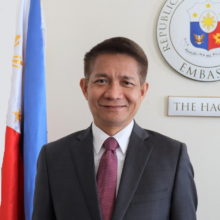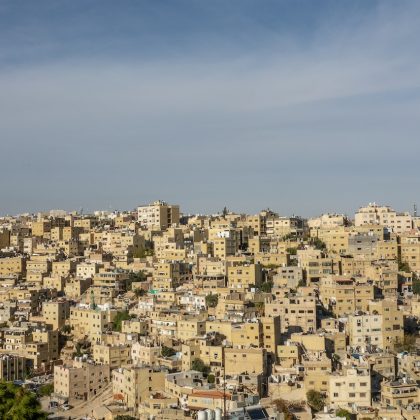Reinforcing the Bonds Between the U.N. and the Permanent Court of Arbitration
The General Assembly of the United Nations adopted on August 1, 2023 a resolution looking forward to the 125th anniversary of the Permanent Court of Arbitration (PCA) next year and commending it for its significant contributions to world peace and justice.
“Recognizing the important contribution of the PCA to the peaceful settlement of disputes …,” among others, the U.N. General Assembly (UNGA) “encourages Member States to make use of the PCA’s services, consistent with international, in arbitration, conciliation, mediation, commission of inquiry, and other peaceful means of dispute resolution, and … encourages Member States that have not yet done so to accede to the Conventions for the Pacific Settlement of International Disputes of 1899 and 1907.”
The UNGA Resolution is significant for at least three reasons. It was adopted by consensus, with 122 co-sponsors, which is a remarkable majority at a time when the assembly is at times polarized. It is only the second one ever from the UNGA on the PCA, the first one having been in 1993 when the latter was invited to participate in its proceedings as an observer. The call for accession is also timely as only 122 of the 193 UN Member States are PCA Contracting Parties, and many in the Asian region are not yet part of it, including three in the ASEAN.
When the resolution was tabled and taken up by the U.N. Member States in late June 2023, PCA Secretary General Marcin Czepelak and I, in my capacity as head of the PCA governing board, the Administrative Council, visited the U.N. headquarters in New York and briefed the delegates on the PCA’s work and plans for the upcoming anniversary.
The PCA shares premises at the Peace Palace in The Hague with the International Court of Justice (ICJ). It is less known than the latter, but equally important. Unknown to many, the first International Peace Conference held in The Hague in 1899 that gave birth to the PCA was also the landmark gathering where the seeds were planted that later germinated into the League of Nations and the Permanent Court of International Justice and ultimately their successors, the United Nations and its judicial organ, the ICJ.
Origins of Multilateralism. The international law scholar Prof Harold Hongju Koh of the Yale Law School also attended the briefing at the U.N. headquarters and noted that 1899 Hague Conference was innovative in three ways. “It was the first official peace conference that did not occur in the aftermath of a major war. It was the beginning of the modern form of international conference like the League of Nations and the United Nations. Second, it was the first major conference that represented a wide range of the world’s nation states, from the West, the East and the Americas, each given a single equal vote. So, whereas not exclusively limited to Western powers, it was not just a great power exercise, it was a global gathering, a precursor to today’s General Assembly…” It saw the birth of modern multilateralism, the organizing principle of the United Nations system.
This view was shared by the U.N. Office of Legal Affairs, through Mr. David Hutchinson, who said that “the Hague Peace Conference – the world’s first truly international assembly of States with the aim of preserving peace – is viewed as a precursor of the League of Nations and the United Nations. The PCA was a pioneer of the modern forms of international dispute resolution, including the ICJ.”
After prolonged periods of inactivity, the PCA had a revival in the late eighties and has since then evolved into a modern international dispute settlement institution with one of the heaviest caseloads of all international courts, supporting in 2022 alone 207 registry cases and handling 51 requests relating to its appointing authority functions. The PCA has assisted the U.N. in resolving conflicts through its mechanisms, such as the Eritrea/Yemen dispute and the Abyei Arbitration. With its services forming a fundamental aspect of the rule of law, the PCA has helped promote the U.N.’s three pillars of peace and security, human rights and development, and assist in achieving the 2030 Agenda and the Sustainable Development Goals.
With the ICJ focused on judicial settlement of disputes, PCA offers enquiry, mediation, conciliation and arbitration, thus together they cover all the means for the peaceful settlement of disputes recommended in Article 33 of the U.N. Charter. In view of this, U.N. Secretary General Kofi Annan in 2004 described the PCA and ICJ as “complementary institutions.”
Governance reforms. Operations in PCA’s traditional areas of competence have been updated and expansions made into new areas of dispute resolution, notably the adoption of procedural rules for arbitration and conciliation of disputes regarding natural resources and the environment, and the outer space. Its role has been enhanced in administering arbitration under Annex VII of the U.N. Convention on the Law of the Sea, serving as registry for almost all of the UNCLOS arbitrations conducted pursuant to said Annex, and the only compulsory conciliation conducted pursuant to Annex V. Its procedural rules continue to be modernized, such that at the forthcoming meeting at the end of this year 2023, the Administrative Council is expected to approve the adoption of five Optional Protocols to existing rules.
To make its services more accessible in different regions of the world, the PCA now has offices in Buenos Aires, Hanoi, Mauritius, Singapore and Vienna.
Reforms have also improved its organizational governance, with the conduct in 2021 of the first-ever competitive election for the position of Secretary General, currently held by Dr. Czepelak, the first non-Dutch in said office. The position of acting President of the Administration Council was created in 2019, and it is now rotated among the regional groups, in line with U.N. practice, every two years.
A number of events are being lined up for the anniversary next year, notably a conference of the “Members of the Court” from the PCA’s 122 Contracting Parties, an anniversary meeting of the Administrative Council, and the presentation of a comprehensive report by a special panel of experts on the workings of the PCA, with recommendations towards the future.
In today’s complex and volatile world, the available means for the peaceful settlement of disputes are underutilized, yet are indispensable. Consider some of the cases before the PCA this year: two cases between Ukraine and Russia concerning the detention of Ukrainian naval vessels and servicemen, and on coastal rights in the Black Sea and the Sea of Azov.
It is foreseen that the PCA will play an even more critical role in the international legal order in the future, and as predicted by experts, some issues for the future will most likely arise, notably environmental and water, outerspace, climate change, cultural property, artificial intelligence, international labor cases, sovereign debt, global health, aggregate litigation and mass claims.
It is propitious that as the PCA marks its 125th anniversary next year, the bonds between the PCA and the U.N. are being reinforced, befitting their shared history and complementary vision as intergovernmental organizations dedicated to peace and justice.

J. Eduardo Malaya is Philippine Ambassador to the Netherlands, Acting President of the PCA Governing Council for term 2023-2024, and a Member of the AsianSIL Executive Council.
Read more on this topic in the Asian Journal of International Law.





